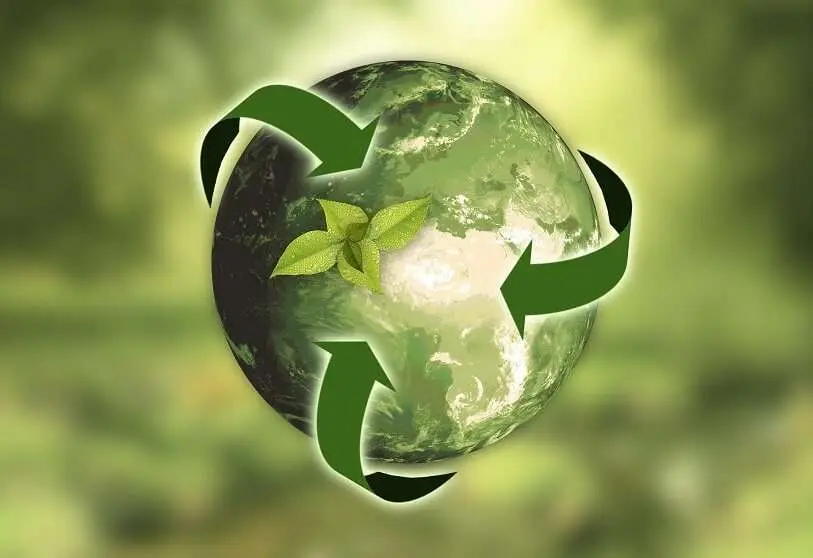Morocco and the circular economy

Climate change is the most serious environmental problem facing humanity. Some countries are adopting the circular economic model as opposed to the unsustainable traditional or linear model.
Morocco, under the guidance of King Mohammed VI, has been committed to the environment and sustainable development for more than 20 years. Today, it is in the process of transitioning towards a circular economy with an emphasis on renewable energies in order to adapt to climate change, reduce its impact and create new opportunities.
The circular economy is about producing goods and services in a sustainable way by limiting consumption, waste of resources and uncontrolled waste generation. It is about repairing, reusing and recycling materials as often as possible. The aim is to move from a society that throws everything into the "dustbin" called the environment to a society that recycles everything. In addition to saving significant production costs, it ensures sustainable development, as the life cycle of products is much longer and without environmental impact.
The transition to the circular economy can be summarised as renewable energy, water treatment and domestic, industrial and agricultural waste, or biodegradable raw materials and goods, where eco-innovation (processes) and eco-conception (design) form the basis of this transition.
Unfortunately, not many countries are promoting the circular model. China, the biggest polluter along with the USA, excels in recycling, due to cost savings, but fails when it comes to highly polluting energies. On the other hand, the US Environmental Protection Agency published, in 2021, its national strategy based on recycling as part of the circular economy.
EU countries lead the ranking on the basis of the 2015 action plan, renewed in 2020 and valid until 2050, which is one of the main instruments of the Green Deal for Europe. Among the countries that stand out the most in circular production are the Netherlands, Finland, Germany, Belgium, France, Spain and Portugal.
In Africa, Morocco is leading this transition with several green projects in the field of eco-innovation, the efficient use of natural resources and renewable energies, in which it stands out as a world leader. It is not for nothing that the country has been trying to get rid of fossil fuels for years. Thus, in 2009, it set a target of 42% renewable energy capacity by 2020. It hopes to reach 52% by 2030. The ultimate goal is set for 2050, where all the energy consumed in Morocco will be 100% green.
It already has the largest solar plants in the world, Nour I and II, in Ouarzazate. It also has a dozen wind power plants located in Tangier, Midelt, Essaouira, Tarfaya, Boujdour and Dakhla, among others. In addition to the traditional hydroelectric power plants.
The country is currently developing energy from hydrogen and green ammonia. Two projects are expected to be launched, Brand Morocco, for the production and commercialisation of low hydrogen through the companies Moroccan Energy for Sustainable Energy Masen and HEVO Ammonia Morocco. Thus, at the World Power-to-X Summit, held in Marrakech last June, European countries confirmed Morocco's potential in the creation of renewables, pointing out that the country will soon be Europe's leading supplier of green hydrogen.
Since 2016, the year in which COP22, the successful Marrakech summit on climate change, was held, there has been a law banning the production, import, export, marketing and use of plastic bags. There is also the National Climate Plan 2020-2030, which aims to strengthen the capacity to adapt and transition to a low-emission economy, implement national climate policies at the local level, and promote innovation and awareness.
According to MIT Technology Review, Morocco is a leader in green energy in Africa and the Middle East. And the International Energy Agency (IEA) highlights Morocco's progress in renewables and decarbonisation in its annual report. Moreover, the African Development Bank (ADB) has just expressed its desire to extend the Moroccan model to the Sahel. Last May, Morocco was asked to chair the 6th United Nations Environment Assembly for a two-year term.
In addition to renewables, Morocco is striving to implement the principles of the circular economy in the treatment of domestic waste. To mitigate the greenhouse effect, the country is treating wastewater with numerous wastewater treatment plants, while desalinating seawater with plants in full operation and others under construction. In addition, 170 dams are planned to be built by 2030. The president of the International Commission on Irrigation and Drainage (ICID) pointed out that Morocco is an example for African countries.
Of course, the implementation of the circular economy is perfectly in line with the 4th axis of Morocco's New Development Model (NMD) on "Territories and sustainability", which calls for preserving "natural resources and strengthening the resilience of territories to climate change".
Morocco is at the forefront of economic and technological trends and could not miss its rendezvous with climate and sustainable development. It has two seas, rivers, mines and minerals, mountain ranges, forests, beaches, fauna and flora. These are resources with which the Kingdom has been blessed. We must exploit them and pass them on to future generations.
The circular economy thus constitutes a real economic lever for Morocco. We can speak of economic value (new investments, creation of new jobs and improved competitiveness of companies), climate value (quality of air, seas, rivers, forests and coastline), health value (prevention of digestive, respiratory and cardiovascular infections) and, finally, social value (social awareness, solidarity and social welfare).
Private enterprise must accompany the Kingdom's gigantic effort to move towards a resilient circular economy by adapting its business model through eco-innovation and eco-design.

